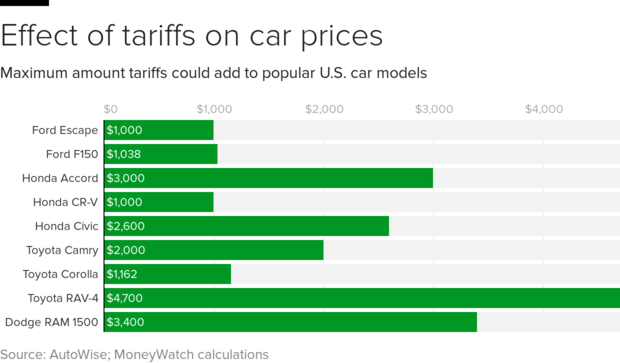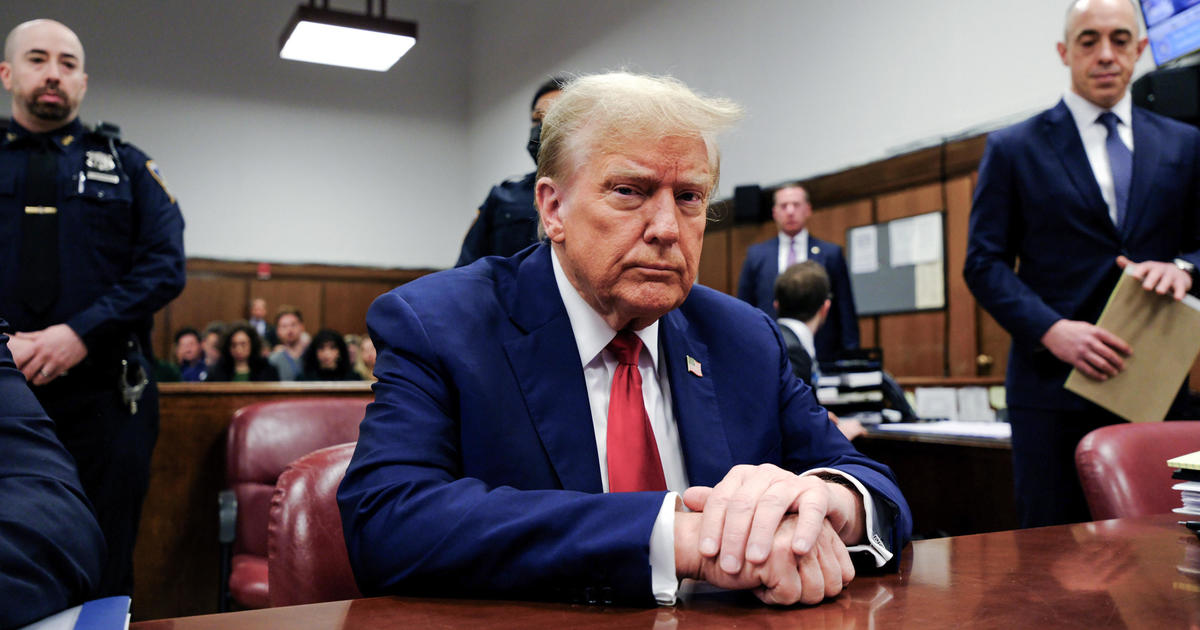Trump seen imposing auto tariffs despite industry opposition in U.S.
A growing chorus of trade experts say the Trump administration seems likely to impose billions of dollars worth of tariffs on imported autos and automobile parts in the next year despite widespread opposition from both domestic and overseas manufacturers, dealers throughout the U.S. and even local and state government officials.
U.S. Commerce Department public hearings held last week on the proposed tariffs for autos and auto parts only "strengthened our view that the Trump administration is determined to press ahead with tariffs," Eurasia Group's Todd Mariano wrote in a note to clients this week.
"While Commerce officials including Secretary [Wilbur] Ross maintain that the matter is open, their questioning during the hearing is instead feeding industry belief – which we share – that it has essentially been decided already," Mariano wrote. "Statements drew on a new geo-technology angle, that onshoring electric vehicle/autonomous vehicle production would enable the U.S. to dominate critical future military technologies."
It's not yet clear what exemptions to the proposed tariffs the administration might allow, he wrote. Eurasia Group now sees a mere 10 percent chance that no tariffs will be implemented. They're more likely to be "applied unevenly in order to create leverage for negotiations," Mariano wrote.
That's in line with the assumption of other strategists and economists, like those at UBS, who said in a note last week that they saw such tariffs for autos, though not auto parts, in place by year-end.
Mr. Trump's threat to slap heavy tariffs on imported cars and auto parts may cost hundreds of thousands of American jobs and raise the cost of your next vehicle by roughly 10 percent, economists estimate. U.S. trade depends so much on autos and auto parts that American workers and drivers could suffer the biggest hits from the threatened tariffs, they argue.
The nation's most prominent bank CEO, Jamie Dimon of JPMorgan Chase, said last week that significantly expanding tariffs -- including taxing imported cars for national security reasons, as the administration has proposed -- could seriously damage the U.S. economy.
"If you do another $200 billion of tariffs and this national security thing about cars, I think that you're getting pretty close to reversing some of the benefits you've seen in the economy," Dimon told CNN.
In a July study, the Peterson Institute for International Economics estimates that the proposed 25 percent tariffs would cause the price of an entry-level compact car to rise between $1,409 and $2,057 in the U.S.; a new compact SUV/crossover, the most popular vehicle in America, would rise by $2,092 to $3,066.
More upscale versions of the compact SUV/crossover would rise by significantly more, $4,708 to $6,971, because of higher imported foreign content, and hence higher taxes paid, the research firm concluded.
For his part, Mr. Trump has implied he'll use the threat as a bargaining chip to gain better trade deals.
No vehicle made in the U.S. uses 100 percent U.S. made parts, the PIIE study points out. That means even U.S.-branded automobiles will cost more.
"Often overlooked when auto tariffs are considered is that, because of border-crossing manufacturing supply chains, there are in fact no 100 percent 'made in the USA' cars," the PIIE analysts, led by Mary Lovely, wrote. "Indeed, many so-called 'foreign cars' are assembled in the United States—and some contain more domestic content than similar vehicles bearing American name badges."
The National Auto Alliance, an industry group, estimates that in the U.S. about 7.2 million jobs are tied to the auto industry directly: 2.4 million are employed by automakers, 1.6 million by dealers and nearly 3.2 million by suppliers of auto parts.
Auto companies, industry groups, global trading partners and local governments all echoed similar testimony submitted to the Commerce Department this month pleading for Mr. Trump not to impose the 25 percent tariffs.
U.S. allies have warned of retaliations if the administration imposes auto tariffs, Politico recently noted. Those contingency plans will come into play this week when European Commission President Jean-Claude Juncker comes to Washington to "pacify this new theater of trade conflict," the Eurasia Group's Mariano wrote.
Germany's Angela Merkel, for one, may be hoping Juncker can come up with a deal to stave off the tariffs, Axios reported. German brands dominate the U.S. luxury auto market and account for tens of thousands of U.S. jobs at assembly plants alone, mostly in the U.S. South.
"We remain skeptical that this gambit can succeed, where 'success' is defined as permanently shelving the [Commerce Department] investigation," the Eurasia Group note said. "If we're wrong, that would still only apply to the EU; other countries will still have to make their own deals with Washington given the multitude of trade-agenda items the White House is seeking to address with this action."
Japanese carmakers are also nervous, a separate note from Eurasia Group said. The two countries aren't likely to strike a near-term deal, and Japan is likely to appeal any moves to the World Trade Organization, rather than retaliate through tariffs of its own.
If a deal with Japan is reached at all, it would include "limited Japanese concessions but enough for President Donald Trump to claim a 'win,'" the note said.
Under part of a Cold War-era law by which the administration would impose the tariffs, known as section 232, the Commerce Department it has until February to send its analysis and recommendation to Mr. Trump, who then has 90 days do decide, analysts have said. Several strategists see a decision coming from Mr. Trump sooner.




